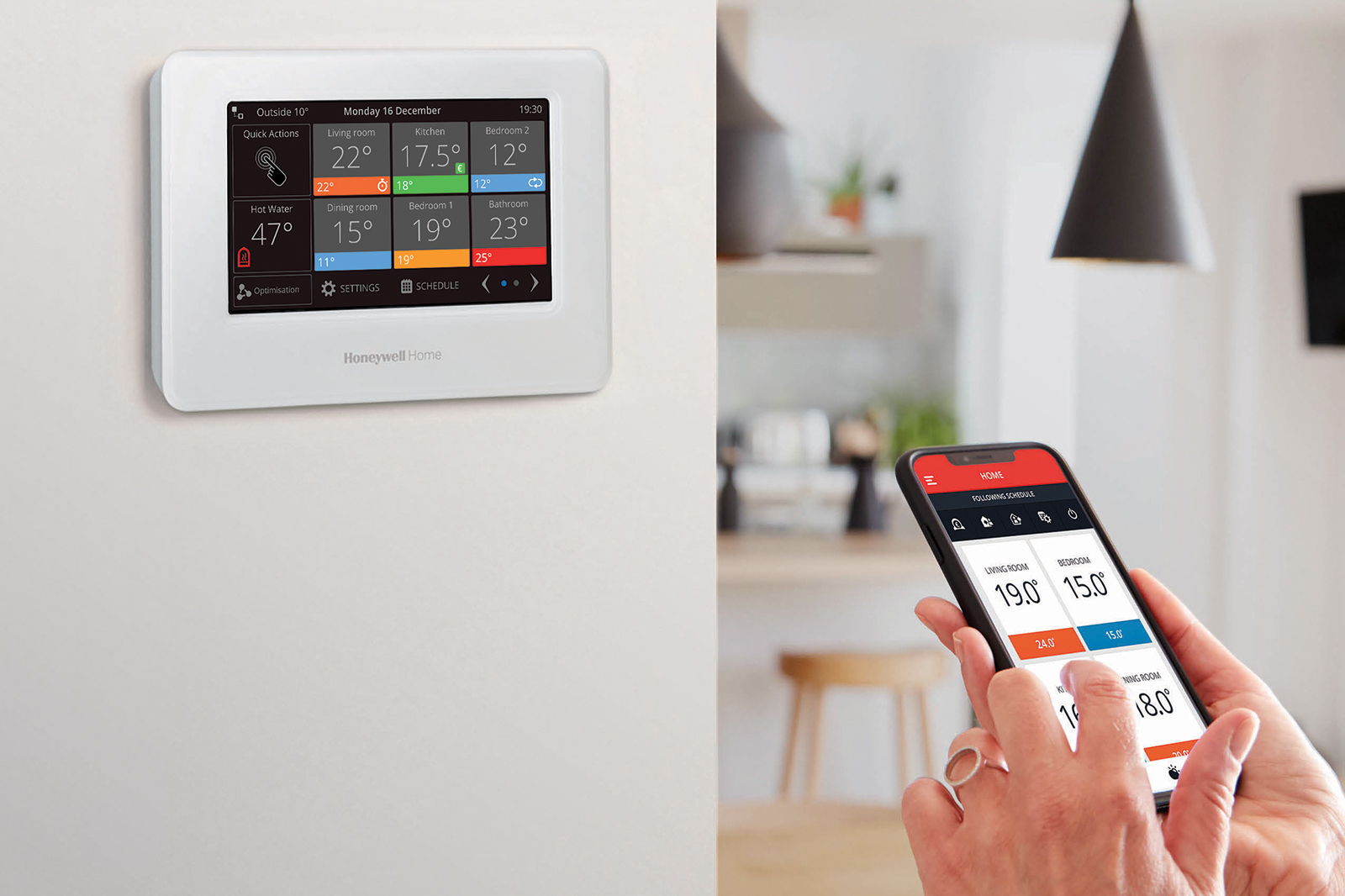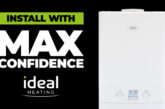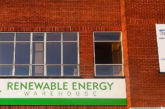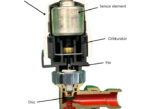
Resideo examines how the latest controls can help to deliver energy savings.
Over the last decade, the decarbonisation of heat in the UK has become the focus of the government’s environmental policy. And whilst upgrading to a low-carbon technology such as a heat pump may be an option for some, many others will want to wait – particularly if their existing boiler still has a lot of life left in it.
With homeowners increasingly concerned about their impact on the environment though, installers have an opportunity to deliver efficiency wins through controls. Research has shown that using a thermostat can reduce carbon emissions by up to 12%* – so whether a customer chooses to upgrade to an increasingly popular heat pump or continue with their existing system, getting the controls right is key to unlocking improved efficiencies in the immediate term.
Martin Wilson, Sales Director at Resideo, considers how presenting homeowners with solutions that increases the effectiveness of their heating system and reduces their carbon footprint, can also help installers to upsell and retain business.
Historically, there has been lack of evidence in the wider market, quantifying the benefits of thermostats on energy consumption. In light of this, BEAMA – a leading trade association for energy infrastructure – conducted a study last year to test the impact advanced room thermostats had on energy efficiency.
Conducted in partnership with Salford University, HVAC authority, OpenTherm Association, and a number of manufacturers, including Resideo, a series of tests were carried out to establish the energy saving benefits of two types of advanced room thermostats.
The study found that something as simple as replacing a standard room thermostat with a directly modulating one in a central heating system, can reduce the gas used by 12% over the heating season. Alternatively, installing a room thermostat with proportional on/off load compensation, as a direct replacement for a standard option, can reduce the gas used for heating by 10% over the peak period.
These findings provide installers with an opportunity to demonstrate the energy savings a thermostat can bring. And, with millions of properties around the country having no or inadequate thermostats for their system, there is plenty to play for.
A waste of energy
When looking at ways to improve efficiency in any system or process, reducing waste should be the first port of call. With boilers more efficient than ever before, installers may find it useful to look at how a customer is currently controlling their heating to understand where energy might be being used unnecessarily.
For customers that are now working from home more regularly and usually only occupying a couple of rooms, heating an entire house is inefficient. As an installer, by recommending products that can control the temperature of individual rooms, you can help improve system efficiency, reduce the amount of energy being used and save the customer money.
The customers’ current heating system may lack the functionality to do this, so a thermostat with a smart zoning feature could make a real difference. For example, the Honeywell Home evohome with smart zoning technology uses radiator controllers to wirelessly measure and control temperatures for up to 12 zones individually, without needing to disturb décor during installation.
Responding to temperature changes
Using a thermostat that responds to outside temperature fluctuations can further help a heating system in running as efficiently as possible.
Thermostats with a smart weather feature, for example the evohome system, will follow the set programme on cooler days, but when it warms up outside it will automatically turn the heating off and save energy. It does this by monitoring outside temperature, room temperature and setpoint, and is programmed to act when heat demands are very low.
For boilers, patented Advanced Load Scaling technology limits inefficient high return temperatures to ensure it runs in its most efficient mode. For customers with heat pumps, smart thermostats are also vital in ensuring that optimum comfort is delivered in the most energy efficient way as the technology relies on the outside air to generate heat and regulate temperature.
Start saving today
The latest findings from BEAMA have shown that thermostats are a here and now technology that help homeowners use energy more efficiently. Yet, there are thousands of homeowners across the UK who still aren’t using them.
This presents installers with a valuable opportunity to upsell. What’s more, with the ability to monitor and control a heating system remotely from a smartphone or other connected devices and select different temperatures for separate rooms, there are plenty of ways a customer can control how much energy is used whether they opt for a heat pump or boiler.
The Honeywell Home evohome works with both boilers and heat pumps and can be used to control underfloor heating which is often installed as the heat emitter alongside heat pumps. It can also manage the settings for stored hot water and radiators, making it a highly versatile solution now and into the future.













